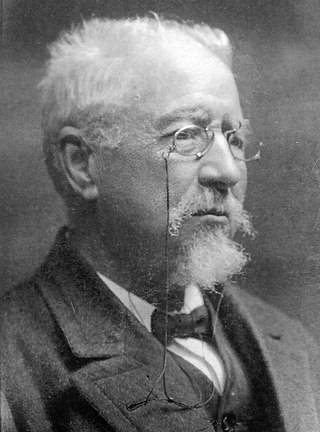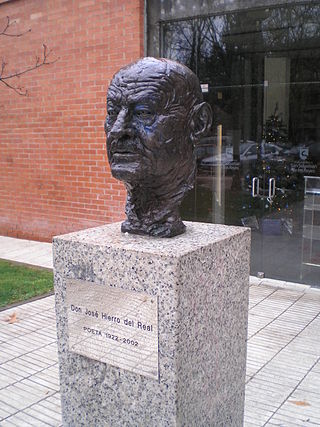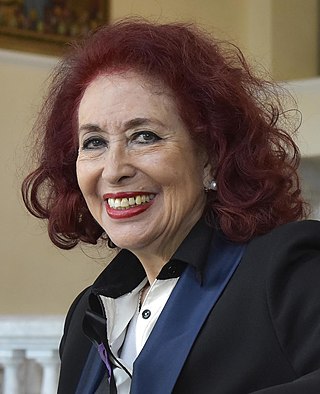Related Research Articles

Manuel Antonio Martínez Murguía was a Galician journalist and historian who created the Real Academia Galega. He was one of the main figures in Galician Rexurdimento movement. He is also remembered as Rosalía de Castro's husband, publisher and main supporter.
Sergio Pitol Deméneghi was a Mexican writer, translator and diplomat. In 2005, he received the Cervantes Prize, the most prestigious literary award in the Spanish-speaking world.
Iván Carvajal Aguirre is an Ecuadorian poet, philosopher and writer. In 1984 he received Ecuador's National Prize for Literature, the "Aurelio Espinosa Pólit" prize, for his work entitled "Parajes". In February 2013 he won the Premio a las Libertades Juan Montalvo.

Enrique Vila-Matas is a Spanish author. He has authored several award-winning books that mix genres and has been branded as one of the most original and prominent writers in the Spanish language.

Andrés Neuman is a Spanish-Argentine writer, poet, translator, columnist and blogger.

Agustín Fernández Mallo is a physicist and Spanish writer. He lives in Palma de Mallorca. He is a member of the so-called Nocilla Generation.

Yolanda Castaño Pereira is a Galician painter, literary critic and poet.

Soledad Puértolas Villanueva is a Spanish writer, and on 28 January 2010 was named an inmortal or member of the Real Academia Española. She is a recipient of the Premio Planeta de Novela.

José Hierro del Real, sometimes colloquially called Pepe Hierro, was a Spanish poet. He belonged to the so-called postwar generation, within the rootless and existential poetry streams. He wrote for both Espadaña and Garcilaso magazines. In 1981, he received the Prince of Asturias Awards in Literature, in 1998 the Cervantes Prize and he received many more awards and honours.
Jesús Ferrero is a Spanish writer born in 1952 in the Spanish province of Zamora.

Iris M. Zavala was a Puerto Rican author, scholar, and poet, who later lived in Barcelona, Spain. She had over 50 works to her name, plus hundreds of articles, dissertations, and conferences and many of her writings, including "Nocturna, mas no funesta", build on and express this belief.

Luis García Montero is a Spanish poet and literary critic, as well as a professor of Spanish Literature at the University of Granada.

Diego Martínez Torrón is a professor of Spanish Literature at the University of Córdoba, Spain, and a writer, author of essays, poetry and novels. He has been a speaker at many of the major universities in Europe and the United States. A specialist in nineteenth and twentieth century Spanish literature he has published numerous books on Spanish Romanticism, with interpretive contributions and unpublished texts. He has edited the most faithful edition of the complete works of authors such as José de Espronceda and the Duque de Rivas. He has also written about Lista and Quintana and the work of Spanish progressive liberals from the early nineteenth century to the end of the period of Romanticism. He has studied the poetic thought of Juan Ramón, Octavio Paz and José Bergamin. He has also dedicated numerous studies to the works of Cervantes. He has studied the narrative of Álvaro Cunqueiro, Juan Benet, Azorín and has published the first annotated edition of El Ruedo Ibérico of Valle-Inclán. His concept of literary methodology stems from a new, non-Marxist approach to the binomial ideology and literature. He has edited Don Quixote, studying the thinking of Cervantes.
Antonio Colinas Lobato is a Spanish writer and intellectual who was born in La Bañeza, León, Spain on January 30, 1946. He has published a variety of works, but is considered to be above all a poet. He won Spain's National Prize for Literature in 1982, among several other honors and awards.
Paloma Díaz-Mas is a Spanish writer and scholar.
Clara Obligado Marcó del Pont is an Argentine-Spanish writer.
Aurora Luque Ortiz is a Spanish poet, translator, teacher, and writer based in Andalusia.
The Premio Biblioteca Breve is a literary award given annually by the publisher Seix Barral to an unpublished novel in the Spanish language. Its prize is €30,000 and publication of the winning work. It is delivered in February, to a work from the preceding year.

Lidia Falcón O'Neill is a Spanish politician and writer. With a degree in law, dramatic art, and journalism, and a PhD in philosophy, she has stood out for her defense of feminism in Spain, especially during the Transition.
References
- 1 2 "La escritora gallega Luisa Castro obtiene el premio Biblioteca Breve con la obra 'La segunda mujer'" [The Galician Writer Luisa Castro Gets the Premio Biblioteca Breve with the Work 'La segunda mujer']. El Mundo (in Spanish). Barcelona. EFE. 7 February 2006. Retrieved 5 September 2018.